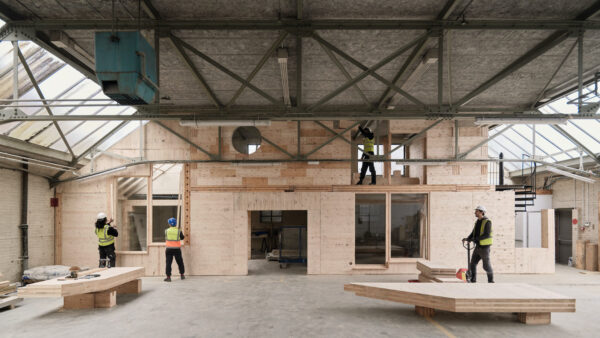
Build UK members are feeling less confident after Brexit, according to Glenigan’s latest State of Trade survey.
According to the group’s second State of Trade survey of 2016, more than 80% of contractors are operating at over 75% capacity and almost half at 90% and while output from Build UK members increased by 22% before the EU referendum, there is uncertainty around future workloads and labour supply.
According to the survey, 82% of contractors reported professional and technical employees were either “difficult” or “very difficult” to recruit, while three-quarters of firms cited difficulty in recruiting supervisors and bricklayers, with two-thirds specifying carpenters or joiners and ceiling fixers.
Where contractors had experienced difficulties in recruiting staff, firms cited lack of experience (61%), lack of skills (57%) and a lack of qualifications (41%) as the reasons for the problems.
These difficulties continue to impact upon the cost of labour, with 45% of respondents reporting an increase in labour costs compared to the previous quarter and almost 65% reporting higher costs than a year ago.
When considering the upcoming quarter, 19% of contractors anticipate workloads to rise on the results of Q2 2016, with new-build infrastructure and commercial sectors expected to be particular growth areas.
However, this result is a decrease of 8% from the results of the last quarter (27%) and 11% from the Q4 2015 result (30%), reflecting the increasing uncertainty of the industry before and after the EU referendum.
This feeling of uncertainty continues when assessing the next 12 months. Overall, 21% of contractors still expect their own workloads to rise. However, this represents a 5% decrease on the previous quarter from 26%, and a 26% decrease when compared to the fourth quarter of 2015 which was 47%.











Nothing to do with Brexit but the fact whenever a recession comes along the Architecture & Construction Industry ditch their highly skilled & qualified staff like hot coal. Then when the industry picks up again they want them immediately on tap and wonder where they have all gone or are getting applicants with big gaps in their work records which they see as too undesirable. Both sides of this problem needs to be fixed otherwise the same reactionary nature to one part of the same problem will occur time & again.